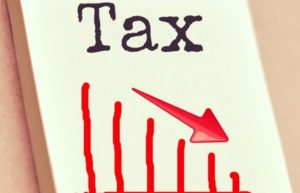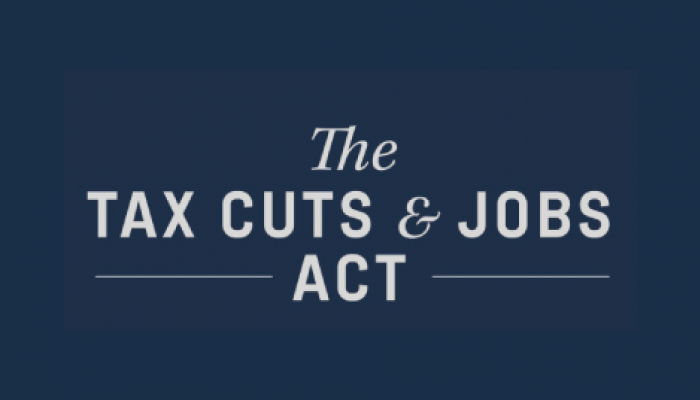The historic Tax Cuts & Jobs Act which congress recently passed is going to have HUGE tax implications for 2018 and beyond. In this article you’ll find out how to maximize your 2017 & 2018 . Want to maximize your refunds for 2017 & 2018? Here’s 4 simple tips: 1. Prepay your property taxes. 2. Defer Income (bonuses). 3. Accelerate your 2017 Itemized deductions. 4. Make more 2017 charitable contributions.

What are the SALT deductions I keep hearing about? (Next 2 Examples)
SALT stands for State And Local Income Tax. The new law caps the combined total of State and Local Income Taxes at $10,000 starting in 2018. These deductions are reported on your tax return in the year PAID, not actually the year OWED. the next two examples explain how to maximize these deductions.
Prepay Your 2018 Property Taxes in 2017
Here’s an example: Bob lives in New Jersey. Bob pays $8,000 in property taxes on his home. Out of Bob’s paycheck for 2017 Bob had $4,000 withheld for State Income tax. Bob commutes to Upland PA for work where he pays $1,500 a year in local income tax. Under the 2017 law Bob can deduct all $13,500 in State & Local Income Taxes on his return. Starting in 2018 Bob can only deduct $10,000. Rather than lose a $3,500 deduction next year, Bob will go into his local tax office before the end of the year and prepay $3,500 of his 2018 property taxes in 2017. On Bob’s 2017 tax return he will take a $17,000 SALT deduction and in 2018 Bob will get a $10,000 SALT deduction. Bob also plans to move to a State in early 2019 that has a lower property tax rate. If Bob has a mortgage on his home where his property taxes are included in his payment, Bob will also need to contact his mortgage company and notify them of his prepayment so that his 2018 mortgage payment can be recalculated to reflect the lower amount which needs to be escrowed, thus lowering his monthly mortgage payment.
Prepay Your 2018 State Income Tax
Sara is in a similar situation as Bob. Sara owns a small business and makes State estimated tax payments of $3,000 every year. Instead of waiting until 2018 to make her 2018 Estimated Tax Payments, Sara makes them all in 2017. Sara takes the deduction of her 2018 State income taxes in 2017 because Sara knows that deductions count in the year PAID, not OWED.

Take Advantage of the 2018 Decreasing Tax Brackets in 2018 (Next 2 examples)
Tax brackets are being reduced across the board for almost everyone, some more than others. You should consult your tax advisor and discuss what bracket you are in now and what bracket you will be in for 2018 before implementing the next strategies.
Make and Estimated 2017 Tax Payment, Even If You Don’t Owe Any Money!
Bill has $100,000 in taxable income for 2017. For 2017 Bill is in the 28% tax bracket, but in 2018 Bill’s tax bracket will be reduced to 24%. Bill normally files his taxes electronically in early February and gets his refund in late February. Bill logs onto his State’s tax website and makes a 2017 estimated payment of $5,000, even though he knows it will be fully refunded when he files his 2017 income tax. For 2017 Bill will receive an additional federal income tax refund of $1,400 ($5,000 x 28%) when he gets his refund in February. When Bill files his 2018 taxes in 2019, Bill will have to claim the $5,000 refund as income which will reduce his refund by $1,200 ($5,000 x 24%) – BUT – Bill is still $200 to the good!
Defer 2017 Income to 2018 – and even REPAY YOUR 2017 BONUS
As stated above, 2018 tax brackets are being reduced. For Individuals – If your company normally gives you a year end bonus – ask to get your bonus with your first paycheck in 2018 and not 2017. If you’ve already received your bonus and there’s still one paycheck left for the year – ask if you can repay your bonus and get it in 2018 instead. Smaller companies may work with you on this. For Businesses Who Are Cash Basis – If you automatically bill your customers for services at the end of the month, delay your normal year end billing to 2018. Also, delay your 2017 customer invoices to 2018 so you don’t get paid until 2018. Pre-pay 2018 expenses such as rent, utilities, vendor payments, etc.
Pay Deductible Expenses In 2017 Rather Than 2018 –
The biggest examples here are Medical Expenses and Unreimbursed Work Expenses. If you are in the position that you have very high medical bills and qualify for the medical expense deduction, pay some 2018 payments in 2017. Examples would be payments of braces for you children, payments on your dentures, hospital bills which you are paying monthly, etc.
If you are in a profession where you have large unreimbursed work expenses like mileage, tolls, work clothes, work tools, etc. – pay expenses in 2017 that you’d normally pay in early 2018. Examples are purchasing new uniforms, malpractice insurance, tools, etc.

Make More Charitable Donations in 2017
Because the tax brackets are decreasing, the impact of charitable donations will also decrease. This impact will be felt the most with people who are currently in the 15% to 28% tax brackets and the 39.6% bracket because they will be reduced by about 3%. Cash Contributions – Reduce your 2018 cash charitable contributions and instead make extra contributions in 2017. If you have pledges you’re making – make those payments in 2017. Non-Cash Contributions – A lot of people look around all of the overwhelming items they have in their house after Christmas and haul a car full of items to Goodwill, Salvation Army, Purple Heart and other charities. Instead of waiting to 2018 to drop off these items – deliver them in 2017! We will have a separate blog article on this shortly.
 At Pink Harbor, CPA we’re always looking out for our clients and communicating with them proactively on matters that impact them. If your CPA, Accountant or Tax Advisor hasn’t reached out to you yet regarding the most massive tax law changes in over the past 30 years – you have to ask yourself why you’re using them.
At Pink Harbor, CPA we’re always looking out for our clients and communicating with them proactively on matters that impact them. If your CPA, Accountant or Tax Advisor hasn’t reached out to you yet regarding the most massive tax law changes in over the past 30 years – you have to ask yourself why you’re using them.
Contact Us today to discuss your unique tax situation
And if you need any of the following services, please call us!
Check out our Facebook page here and become a fan!





